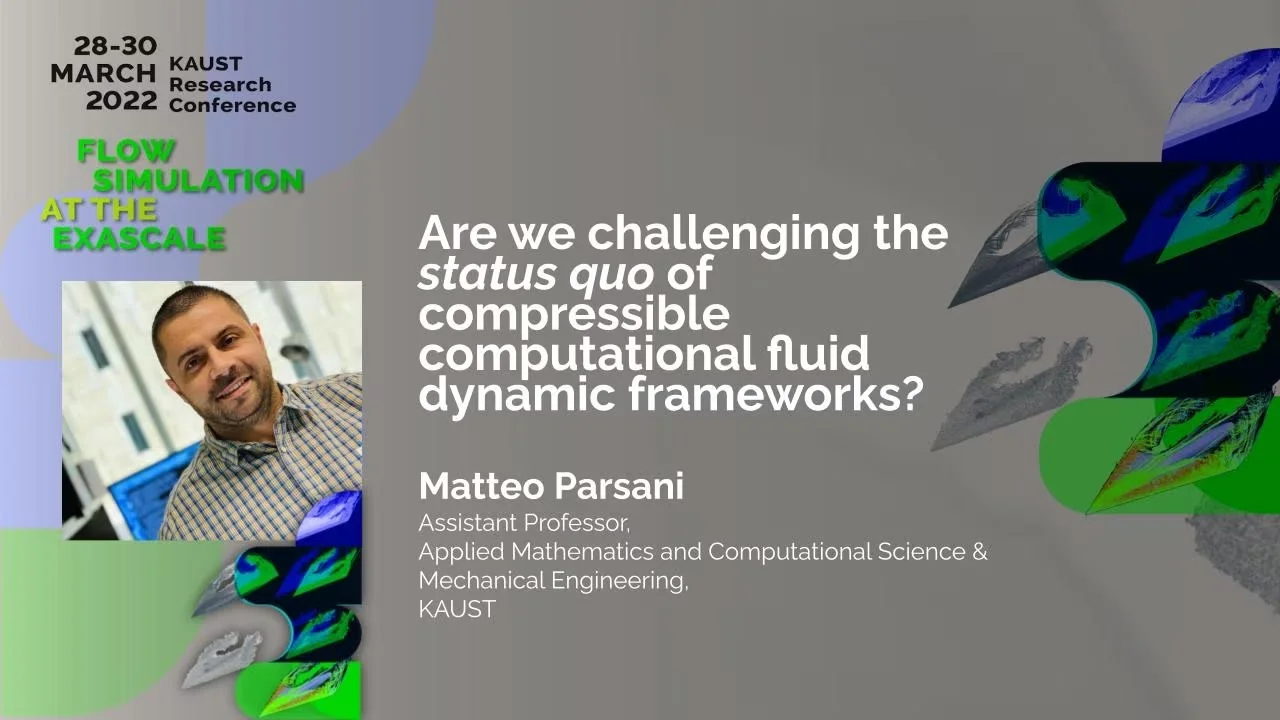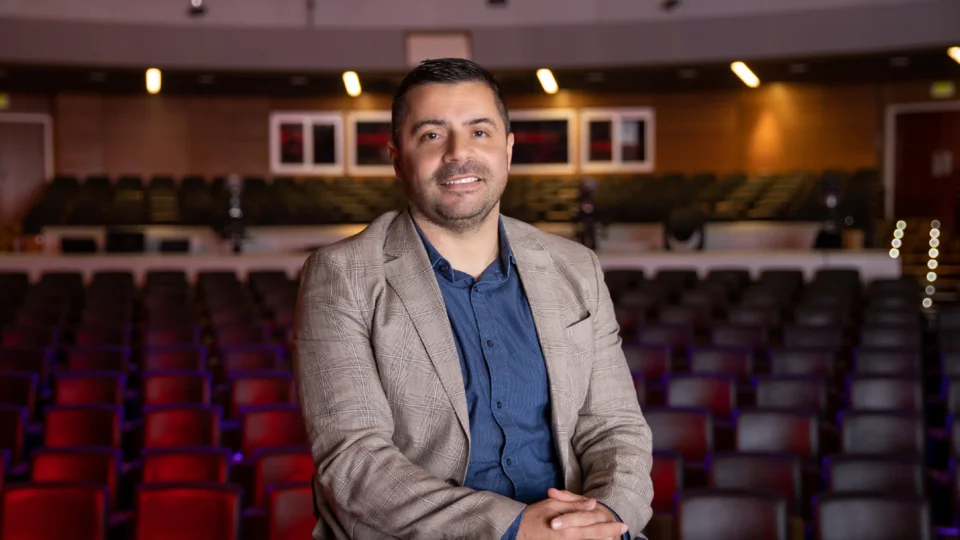
Are we challenging the status quo of compressible computational fluid dynamic frameworks?
Together with the algorithm suitability to exploit current petascale and next-generation exascale supercomputers, robust, accurate, and structure-preserving discretizations are necessary for developing predictive computational tools. In this seminar, we will show how we leverage a multidisciplinary platform that integrates numerical analysis, physics, and high-performance computing for the analysis and development of novel numerical methods for ordinary and partial differential equations with provable properties such as nonlinear stability (entropy stability) and conservation, and structure-preserving techniques. These properties are critical for designing reliable, efficient, and self-adaptive solvers for complex geometries – an essential cornerstone for next-generation computational frameworks. Current classes of partial differential equations that we are working on are the compressible Navier–Stokes equations and the Eulerian model for compressible heat-conducting flows. We also use deep learning to complement and speed up the process of solving efficiently large-scale PDE-based problems. In this talk, we will summarize the progress we made in the last few years in the following areas: - Numerical analysis and algorithm development for robust, smart compressible flow solvers. - Development from the ground up of a new scalable hp-adaptive computational fluid dynamics (CFD) framework, a potential prototype of the future compressible solver as chartered by the NASA CFD 2030 vision. I will show applications and impact in the automotive and aerospace industry and in its extension for improving knowledge of flow physics in aeroacoustics.
Overview
Abstract
Together with the algorithm suitability to exploit current petascale and next-generation exascale supercomputers, robust, accurate, and structure-preserving discretizations are necessary for developing predictive computational tools.
In this seminar, we will show how we leverage a multidisciplinary platform that integrates numerical analysis, physics, and high-performance computing for the analysis and development of novel numerical methods for ordinary and partial differential equations with provable properties such as nonlinear stability (entropy stability) and conservation, and structure-preserving techniques. These properties are critical for designing reliable, efficient, and self-adaptive solvers for complex geometries – an essential cornerstone for next-generation computational frameworks.
Current classes of partial differential equations that we are working on are the compressible Navier–Stokes equations and the Eulerian model for compressible heat-conducting flows. We also use deep learning to complement and speed up the process of solving efficiently large-scale PDE-based problems. In this talk, we will summarize the progress we made in the last few years in the following areas:
- Numerical analysis and algorithm development for robust, smart compressible flow solvers.
- Development from the ground up of a new scalable hp-adaptive computational fluid dynamics (CFD) framework, a potential prototype of the future compressible solver as chartered by the NASA CFD 2030 vision.
I will show applications and impact in the automotive and aerospace industry and in its extension for improving knowledge of flow physics in aeroacoustics.
Brief Biography
Matteo Parsani is an Assistant Professor of Applied Mathematics and Computational Science and Mechanical Engineering at King Abdullah University of Science and Technology (KAUST). He received his B.Sc. and M.Sc. in aeronautics and astronautics from Politecnico di Milano (Italy) and his Ph.D. in mechanical engineering from the Vrije Universiteit Brussel (Belgium). He trained as a postdoc at KAUST and in the Computational AeroScience branch at NASA Langley Research Center (USA).
Professor Matteo Parsani's research interests are related to developing novel, robust, and scalable numerical methods on unstructured grids for partial differential equations and their application to solving realistic flow problems in various natural science and engineering areas. The application domains currently driving Matteo's research are compressible computational aerodynamics (e.g., highly-separated turbulent flows), dense gas flows simulations (e.g., supercritical fluids), computational aeroacoustics for noise reduction, and molecular communication. The high-performance tools developed in his group are also used to solve industrially relevant flow problems in partnership with automotive and aerospace companies and national laboratories.
One of Professor Parsani's main goals is to develop efficient predictive computational fluid dynamic technologies for optimizing engineering designs based on flow dynamics and heat transfer that improve energy efficiency and reduce environmental impacts.
